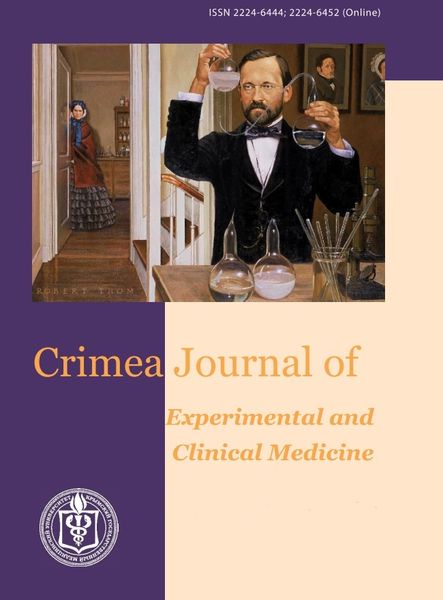A controlled bronchial asthma (BA) has been observed in studies in 25-68% of patients, however, in clinical practice, this level is likely to be lower. Spa treatment is a promising method of increasing the control of BA, however, data on its effect on various links of pathogenesis of asthma are scarce. The aim to evaluate the effect of spa treatment on clinical and functional parameters and systemic inflammation in patients with BA in the postcovid period in conditions of Southern coast of Crimea. Material and methods. Patients (n=73) with BA underwent spa treatment in the Sechenov Institution in Yalta. Before and after treatment, an AQLQ scale survey was conducted. The levels of eosinophils and C-reactive protein (CRP) were studied. Functional studies were also conducted, pulse oximetry (SpO2), spirography with the evaluation of forced vital capacity (LVEF), forced expiratory volume in the first second (OFV1), the ratio of OFV1/VVC, a test with 6-minute walking (T6MX). Results. Sanatorium treatment has had a positive effect on the life quality of patients with asthma. Integral indicator of AQLQ increased from 4.18 points to 4.38 points. Improvements in respiratory parameters were revealed. VVC increased from 92.3% to 95.9% (p = 0.01), OVF1 increased from 78.1% to 82.1% (p = 0.001). The level of CRP did not significantly change. Conclusion. Spa treatment of patients with BA in the postcovid period is effective method for maintaining an adequate level of asthma control, however, it does not affect the level of systemic inflammation, which requires additional study.
bronchial asthma, sanatorium treatment, COVID-19, Southern coast of Crimea, systemic inflammation.
1. Plotnikova P. A., Pavlova V. N., Jeyranyan S. D., Teterleva I. A. Bronchialasthma: aspects of epidemiology, risk factors, variability of the clinical picture,prognosis. Student's 2021;41-2(169): 23-25. (In Russ.).
2. Gvozdenko T. A. The place of prevention and restorative treatment inmaintaining health. Health. Medical ecology. Nauka 2014;2(56):6-8. (In Russ.).
3. Pirogova M. E., Belyaeva S. N., Savchenko V. M., Bobrik Yu. V. The influence of aeropalinological factors of the air environment of the Southern coast of Crime on the results of sanatorium treatment of patients with bronchial
4. Gosteva B. O., Ilyasova G.Sh., Ivanov S.V. The role of comprehensive preventive measures in the treatment of bronchial asthma in sanatorium-resort treatment in the city of Yevpatoria. Modern aspects of the formation of
5. Ponomareva A.V., Yakovlev M. Yu., Fesyun A.D. and others. Medicinal and non-medicinal methods of treatment and rehabilitation in children with bronchial asthma (review). Russian Journal of Rehabilitation Medicine. 2021;
6. Perelman N. L. Comparative characteristics of the quality of life of patients with bronchial asthma with various types of respiratory tract hyperreactivity to physical stimuli. Bulletin of physiology and pathology of respiration. 2021;
7. Golovochesova G. A. Analysis of the main causes of uncontrolled bronchial asthma. Siberian Medical Journal (Irkutsk). 2009;87(4):128-130. (In Russ.).
8. Sobko E. V., Kraposhina A. Yu., Demko I. V. The problem of achieving control over bronchial asthma. Bulletin of physiology and pathology of respiration. 2011; (40):37-40. (In Russ.).
9. Ovcharenko S. I., Akulova M. N., Smulevich A. B. What can improve the control of bronchial asthma. Consilium Medicum. 2010;12(3):62-67. (In Russ.).
10. Ivashchenko A. S., Dudchenko L. Sh., Kaladze N. N., Mizin V. I. Phenotypes of bronchial asthma at the sanatorium stage and personalized medical rehabilitation programs. Issues of balneology, physiotherapy and therapeutic
11. Babanov C. A., Strizhakov L. A., Baykova A. G., et al. Clinical and immunological features and prognosis in various phenotypes of occupational bronchial asthma. Occupational medicine and industrial ecology. 2021;61(7):436-
12. Beloglazov V. A., Yatskov I. A., Useinova R. H. Low-intensity inflammation in the postcovoid period as a strategic goal of treatment and rehabilitation. Acta Biomedica Scientifica. 2024;9(2):24-34. (In Russ.).
13. León-Pedroza J. I., González-Tapia L. A., del Olmo-Gil E., Castellanos- Rodríguez D., Escobedo G., González-Chávez A. Low-grade systemic inflammation and the development of metabolic diseases: from the molecular
14. Abdulan I. M., Feller V., Oancea A., Maștaleru A., Alexa A. I., Negru R., Cumpăt C. M., Leon M. M. Evolution of Cardiovascular Risk Factors in Post-COVID Patients. J Clin Med. 2023;12(20):6538. doihttps://doi.org/10.3390/jcm12206538.
15. Juniper E. F., Svensson K., Mörk A. C., et al. Modification of the asthma quality of life questionnaire (standardised) for patients 12 years and older. Health Qual Life Outcomes. 2005;(3):58. doihttps://doi.org/10.1186/1477-7525-3-58.
16. Sobko E. A., Demko I. V., Kraposhina A. Yu. and others. Assessment of quality of life indicators and the role of adherence in achieving control in severe bronchial asthma. Medical advice. 2021;(16):45-51. (In Russ.).
17. Leshchenko I. V. Control of bronchial asthma: the actual problem and its solution in real clinical practice. Pulmonology. 2019;29(3):346-352. (In Russ.). doihttps://doi.org/10.18093/0869-0189-2019-29-3-346-352.
18. Barkalov S. A., Moiseev S. V., Trebuntseva L. V. The model of integral estimation of AQLQ based on latent variables. Project management in construction. 2019;4(17):91-96. (In Russ.).
19. Dudchenko L. Sh., Kaladze N. N., Yusupalieva M. M. Rehabilitation of patients with bronchial asthma with fixed obstruction at the sanatorium stage. Physical and rehabilitation medicine. 2022;4(1):41-46. (In Russ.).
20. Efimenko N. V., Abramtsova A.V., Simonova T. M., Semukhin A. N. Assessment of the functional state of the cardiorespiratory system in patients after COVID-19 pneumonia during medical rehabilitation at the resort. Modern
21. Dudchenko L. Sh., Grigoriev P. E., Solovyova E. A., Andreeva G. N.Rehabilitation of patients after a new coronavirus infection with an emphasis onrespiratory therapy. Crimean Journal of Experimental and Clinical Medicine.
22. Andreev K. A. Gorbenko A.V., Skirdenko Yu. P. and others. Markers of chronic low-intensity inflammation in healthy respondents. Modern problems of science and education. 2024;(1):26. doihttps://doi.org/10.17513/spno.33285.
23. Demko I. V., Sobko E. A., Chubarova S. V., Kublik E. S., Mineeva E. S.,Eidemiller N. S. Interrelation of indicators of systemic inflammation and cellular composition of induced sputum in a combination of bronchial asthma and
24. Beloglazov V. A., Popenko Yu. O., Shadchneva N. A., and others. Integralindicators of antiendotoxin immunity and systemic inflammation in patients with bronchial asthma with various biophenotypes of inflammation.
25. Kytikova O. Yu., Gvozdenko T. A., Antonyuk M. V. The role of systemic inflammation in bronchial asthma and obesity. Clinical medicine. 2018;96(9):784-790 (In Russ.). doihttps://doi.org/10.18821/0023-2149-2018-96-9-784-790.
26. Voennov O. V., Zubeev P. S., Mokrov K. V., Fedorov M. E., Gunderchuk O.N. The effect of systemic inflammation on the risk of acute respiratory failure and death in patients with COVID-19. Medical Bulletin of the Ministry of





